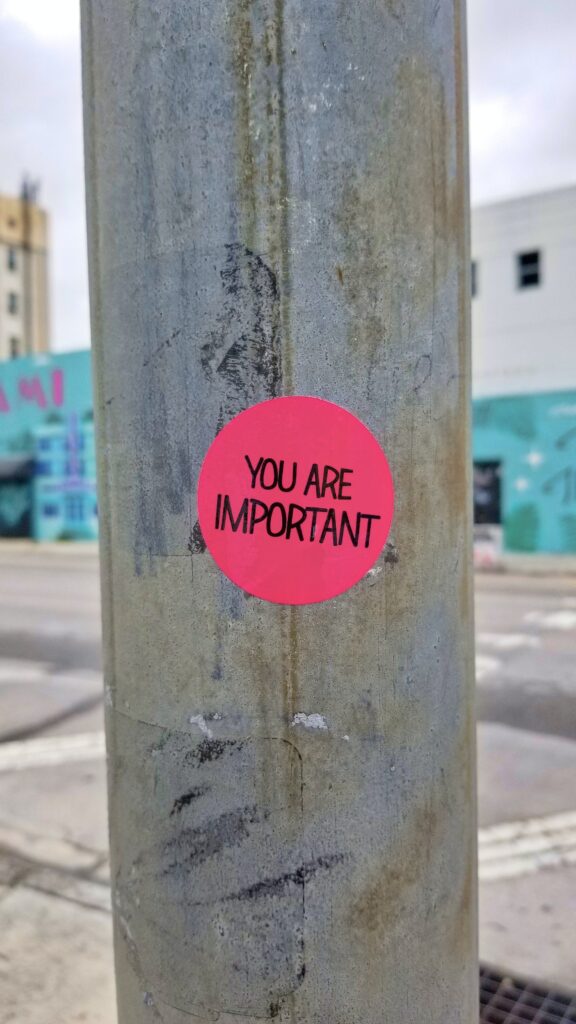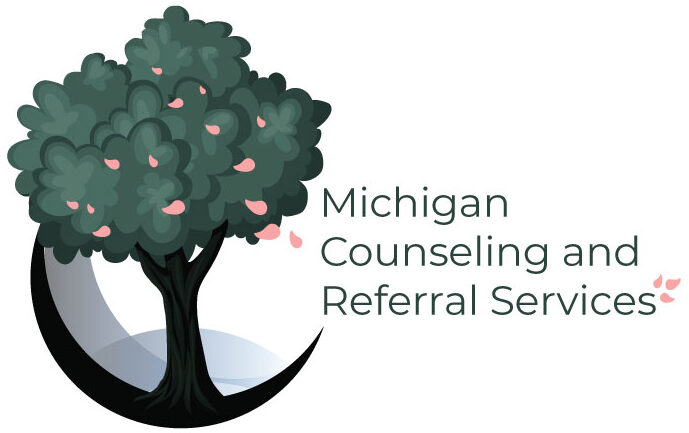How To Explain Neurodiversity To A Child
Discovering that you have a neurodivergent child can yield a lot of emotions. Whether self or professionally diagnosed, you likely have many questions. You may be wondering about different ways to explain neurodiversity to a child.
I’m here to tell you it’s not too complicated! Neurodivergence in children looks and may feel like an impossible mountain to climb. After all, you want to support your child as best you can. There are many ways you can go about explaining neurodiversity to your child.
I’ll start by talking a little about the neurodiversity lens and what it means for parents of neurodivergent children. Then, we will chat about how to explain neurodiversity to a child.

Explaining Neurodiversity
The best way to start explaining neurodiversity to your child is to best understand what it is. Neurodiversity is a lens that we as therapists use when working with children in therapy. Our neurodivergent affirming lens basically views certain behaviors, or divergences, as simply divergences in the brain. NOT disorders.
For a more comprehensive list of what is considered neurodivergent, check out this article. There I not only give the name of the neurodivergent conditions, but also steps to take if you are neurodivergent.
Neurodivergence in adults and children often times will look like these conditions as diagnosed by a mental health practitioner:
- Autism
- Attention Deficit Hyperactivity Disorder (ADHD)
- Obsessive Compulsive Disorder (OCD)
- Dyslexia
- Dyspraxia
- Tourette’s Syndrome
- Dyscalculia
- Dysgraphia
- Meares-Irlen Syndrome
- Hyperlexia
- Synesthesia
- Anxiety
- Trauma
- Sensory Processing Disorder
If your child is diagnosed with one of these conditions I would highly consider finding a neurodivergent affirming therapist in your area that specializes in working with kids. In addition to finding a good therapist, keep the following in mind when explaining neurodivergence to your child.

1. “Symptoms” Of Neurodivergent Children Are Not Disorders
First off, your child does not need a diagnosis for neurodivergence from a mental health practitioner to be considered neurodivergent. Diagnosis in mental health is used for one reason and one reason alone: insurance billing. You can read more about why getting a formal diagnosis isn’t a good idea here.
After reading that you may be thinking “if my child doesn’t get diagnosed, how will I know is they are neurodivergent?” And more importantly: what do I do? These are great questions! Diagnosis in mental health, unless there is a true medical onset of mental illness, isn’t much more than a stigmatizing label for your child.
Therefore, the approach of how to explain neurodiversity to a child will look slightly different than it has in the past.
Having a therapist diagnose your child with Autism, ADHD, OCD, Tourette’s, or other neurodivergent conditions on paper will cause professionals in their life to begin making assumptions about them that can be harmful. This is because neurodivergences are not considered disorders. Similarly, “symptoms” of neurodivergences are not considered disordered.
So make sure to communicate to your child that first and foremost: there is nothing wrong with you.
What Are The “Symptoms”?
Formal diagnoses goes against the movement’s new way of looking at neurodivergence. Remember, disorders are only disorders if they inhibit a person’s ability to function in everyday society healthily. Otherwise, you risk having your child labeled and treated in a way that can be counterproductive to this.
Medical and mental health practitioners are trained two-fold: diagnose and treat. In the medical field this makes a whole lot of sense since research shows that treating disease in humans tends to be replicable across the board. This means that we have narrowed medical treatment down closer to an “exact science”.
Because many neurodivergent behaviors in children do not actually inhibit their abilities to function healthily in everyday society, unnecessary diagnoses and overmedication/treatment can cause children to have low self-esteem, feelings of isolation from their peers, feelings of isolation from their family, low motivation, and higher bouts of tantrums and undesirable behaviors.
Take Autism, for example. In children, historically we have labeled children with Autism due to the discovery of “symptoms” like lack of eye contact, echolalia, behavioral meltdowns, and physical stimulating behaviors called “stimming” (flapping of arms, twitching, etc.).
Seems legit, right? Of course they are probably Autistic! However, a traditionally trained mental health practitioner is likely going to assess them as Autistic and refer them to a behavioral therapist, such as an ABA therapist to teach your child to mask their behaviors. This way they can seem more “normal” and fit in better with other children.
So What Exactly Is Wrong With That?
Well, it turns out recently Autistic voices in particular have spoken out against this type of treatment. First and foremost, they’ve reported that receiving this treatment has caused them to feel even more isolated from their peers and family.
Neurodivergent folx would often label themselves as different and “lesser” than their peers by people who barely knew them. Before they were able to understand their diagnoses as adolescents and adults, they had already received the label that has defined who they are. Imagine receiving a label when you are very young that causes people from the majority to negatively judge you discriminate against you for. Sound familiar?
Behaviors like I mentioned above as well as others from neurodivergent conditions absolutely can negatively affect a child’s ability to manage their everyday life healthily. I cannot say this loud enough: it is not because there is something wrong with them.
They may struggle to function in society because there is something wrong with the way society is structured. This includes workplaces, schools, communities of all sorts, and even our “traditional” family.

So What Do I Tell My Neurodivergent Child?
Without getting too in the weeds of what we actually need in society and what we demand as a culture from people, there absolutely is a place for neurodivergent children in society. It is exactly where they are now.
For neurodivergent children to thrive, society needs to accept them as they are. No amount of behavioral treatment can change this fact. Research is even beginning to show that behavioral and medical treatment for neurodivergent children does not show many benefits at all. In fact, in many cases it harms the children it is practiced on.
As with any minority identity, you and your neurodivergent child have an uphill battle ahead of you with professionals. Traditionally, we professionals have not been trained with a neurodivergent affirming lens in school or even after.
No matter what a professional may tell you about your child, remain at their side and advocate for them. Show them that they are perfectly fine the way they are and that they have strengths that other kids don’t have. Educate them on how their brains are different from their peers, just like their noses, eyes, hair, and other physical attributes. And that’s okay!
How to explain neurodiversity to a child starts with learning about neurodiversity and what it is and is not.
2. You Can Be Whoever You Want To Be
Another way to explain neurodivergence to your child is that they are allowed to choose their identity-NOT a professional. I briefly touched on this in the last section. Diagnosis is medically used for treatment of a disorder. Your child does not need treatment for their neurodivergence.
Instead of trying to get a professional to diagnose your child, empower your child to choose their own identity. Teach them to march to their own beat. Of course, while being nice to others.

Teaching your child to embrace their differences rather than try to change them teaches them valuable self-love, confidence, and will in turn give them higher self-esteem in the future. These are all incredibly important aspects of your child’s life that will better predict their success later on.
So, it is important to ask yourself: Does my child need a label from somebody or should we all be curious together to learn more about how to make my child successful? This is a neurodivergent affirming lens to parenting.
But What If I’m Wrong?
It’s normal to read this as a parent and say “not gonna happen. There’s no way it’s that simple.” This is pretty normal for a lot of parents I have worked with. It absolutely is part of change to experience some doubt.
Because our culture and medical system are so in favor of “diagnose and treat ASAP” heavy, we naturally all have an aversion to this type of lens in treatment. Plus, your anxiety about being wrong is actually a strength! If you had no anxiety about a major decision you and your child want to make together regarding their well-being I would worry about many other things vs your child’s neurodivergence.
Learn to embrace your anxiety you may have related to adopting this lens for your child. Them seeing you embracing your own beliefs will help them feel much more confident in theirs (see what I did there?). We really are our best examples for our kids. In many cases, them seeing us address our own insecurities is a great way to teach them to manage theirs.
So make the call! You can do it. As their parent you know them best. Navigating yours and your child’s beliefs and neurodivergence can be a truly magnificent and fulfilling experience.

3. Educate Your Child On Their Uniqueness
Now that we’ve tackled what to do and your potential thoughts about it, what words do we use? Don’t be afraid to answer their questions about how they may feel different than their peers. Like I mentioned in the previous section, focus on empowering your children through their neurodivergences.
Use language that is empathetic, yet strengthening and empowering. “I know it can be difficult to feel different than your classmates. But I’ll tell you what, you have “X” ability that none of them have! Isn’t that cool?”
Being direct about neurodivergence and what it means for your child is important, as well. As parents, we may try to sugar-coat realities that we believe are difficult for our kids to accept. This is a reflection of our own insecurities as parents.
Focus on what I mentioned before and embrace your anxiety as your parental intuition to do the best you can. Show your child how to embrace their identities with grace and strength. Use direct and affirming language about your child’s neurodivergence.
“Yes, you are different and that’s okay. All kids are different and special in their own way!” This is a great way to introduce your child to the idea of their neurodivergence. It is direct, affirming, and educational.
Try formulating your own approaches that may fit you and your child best!

4. Practice Patience And Acceptance
It is important to remember that the best way for everyone to learn best is to meet them where they are at. Your neurodivergent child is not the exception. They are going to learn much smoother how to integrate themselves into society in a healthy way if we as parents practice patience and acceptance of our children’s neurodivergences.
Remember, your child’s neurodivergence isn’t a problem. It is simply a difference in processing ability that they have vs neurotypical children. Whereas your child may struggle in certain aspects of learning, they will likely excel far beyond their peers in others.
The best practice here is to be patient with your child while you explore with them their identity. Something I love to tell kids I work with in therapy is that we are “explorers” and we will “explore your brain together”. After all, who doesn’t like an adventure?
5. Stand By And Support Your Child Unconditionally
It will also be important for you to unconditionally stand by your child. If they say something, listen to them and take it for face value. Even if you find it difficult to believe or to support based on your own world view.
Worst case scenario if you’re worried about lying they’ll eventually get caught in the lie. Then you can address it then and there instead of assuming they are trying to be dishonest. Trust me, when you assume your child is up to something they eventually will be. Give them the benefit of the doubt.
Showing your neurodivergent child this kind of support is paramount in their healthy development. They live in a world that demands they think and operate in ways that are highly foreign to them. Taking their side and supporting their learning will foster a sense of safety with you for later in life.
Teaching Using Relationships
Promoting this relationship over societal expectations allows you and your child to have a much stronger relationship. Teaching your child to manage healthy and supportive relationships will help them manage many other facets of their life that may be a struggle.
Using relationships is best when learning how to explain neurodiversity to a child.
Relationships will teach your child to ask for help when necessary. This will take them much farther than trying to isolate and address each individual task they might struggle with as neurodivergent children. Empower them to attack the problem in a way that best suits them.
Also, learn about neurodiversity through your own reading and through listening to neurodivergent professionals specifically. The most important aspect of a successful approach to your neurodivergent child is to listen to neurodivergent voices.
It can be easy to feel like we know everything about our child, but I do encourage you to read some literature and talk with neurodivergent folx about their experiences.
Chances are you want to be the best you can be for your child. That’s great! It is best if you are able to read about neurodivergence in children to best support your child going forward.
Conclusion
Neurodivergent children need to succeed just like neurotypical children. Being a neurodivergent child in a world that was not designed for them is a difficult place to be. Imagine feeling so different from your peers as a child, then having your parents not understand-or try to understand-how your brain works to best support you.
Because of this it is important for us to learn how to explain neurodiversity to a child.
Supporting your neurodivergent child early on gives them the ability to give themselves the support they need when they become adults instead of making them feel bad for being different. Like I mentioned before, empowering your child through their strengths can help them accept their differences. That way their light can shine just as bright as it was meant to!

So focus on educating with acceptance and that there is nothing wrong with your child. Neurodivergence is a beautiful aspect of all our lives that we have the ability to explore. Be curious with your neurodivergent child. There’s so much to learn!
Educate yourself and remember to be open to being wrong. It’s important to believe your children’s struggle vs invalidating it. This will feel counterintuitive. But believe me, this approach is going to yield the best results.
Contact Me Directly!
All inquiries are responded to within 1-3 business days from inquiry. Feel free to use my contact information tomorrow to leave a message!
Hours: Monday-Thursday 12-7pm
Phone: (269) 350-3470
Email: antonio@michigancrs.com
Location: 1451 East Lansing Dr., Suite 219
East Lansing, MI 48823

I guess my question is what if the child frames their experience as a disorder with symptoms?
Great question, Ashley! Neurodivergent kiddos for sure are very susceptible to low self-esteem and other mental health problems related to their neurodivergences. This has a high likelihood that they will for sure feel like there is something wrong with them, or that they have a disorder that needs fixing. It’s how I felt for a long time (and still feel to this day in many cases).
We need to look at what specifically we have control of in these situations. For conditions that are considered neurodivergent, we have established that we cannot eliminate the underlying causes of symptoms and that symptoms occur due to structural differences in the child’s neurobiology. Therefore, the best approach is empowering the neurodivergent kiddo to best work within their environment with their neurodivergence vs trying to eliminate symptoms that, quite frankly, aren’t going to go away. Some therapy, maybe on the acceptance and emotional regulation spectrum, to manage this realization for sure may be needed if parents don’t feel confident managing this.
Also, the self-esteem problem also has an environmental component to it. Let’s face it, kids can be mean and can be the cause for a lot of our children’s mental health struggles. A lot of this comes from a lack of understanding our neurological differences in both children and adults culturally. Because neurodivergence isn’t something that even a lot of teachers understand and are trained in (at least here in the US. See many of Germany’s classroom studies that are heading in the right direction), there needs to be a lot of advocacy on our part for more open and accepting school environments to different learning styles and different neurological conditions. Supportive psychotherapy mixed with a healthy amount of good parental support is a winning recipe here for long-term success on promoting self-acceptance and self-love. Easier said than done, but I hope this provides a good answer to your question!